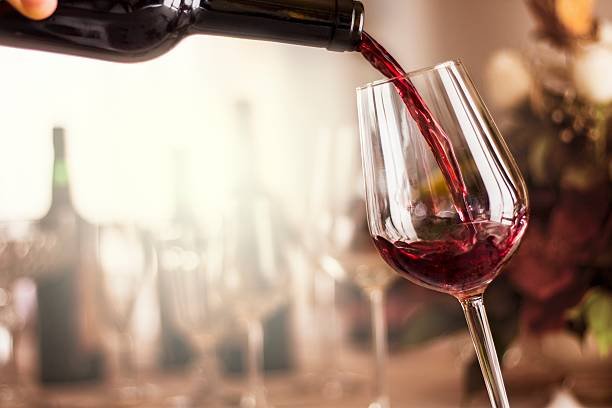
Decanting wine is a practice that has been around for centuries to enhance the experience of enjoying a fine bottle of wine. In comparison, many ways contribute to the taste and aroma of wine. The time and temperature at which it’s decanted play key roles in unlocking its full potential.
A wine decanter adds an extra dimension to the time and temperature in decanting, elevating the overall wine experience. Wine decanters are elegant vessels designed specifically to enhance the enjoyment of wine. With their graceful curves and exquisite craftsmanship, wine decanters are a timeless companion to the finest bottles of wine.
This article teaches how decanting wine leads to a more enjoyable drinking experience.
The Purpose of Decanting
Decanting wine involves transferring it from its original bottle into a decanter, a vessel with a wide base and a narrow neck. This process involves separating the wine from sediment that may have formed over time. Decanting allows the wine to breathe and maximises the wine’s aromatic profile.
By gently pouring the wine into the decanter, the sediment, consisting of particles such as grape skins and tannins, remains behind in the original bottle. This separation ensures a clearer and visually appealing presentation in the decanter while preventing unwanted grittiness or bitterness from affecting the drinking experience.
Decanting also allows the wine to meet oxygen, triggering aeration that softens harsh tannins and opens up the complex bouquet of aromas. The act of decanting is not only practical but also adds an element of elegance to the serving process.
Time: Allowing the Wine to Breathe
When wine is poured into a decanter, it is exposed to oxygen, which initiates a process called aeration. Aeration allows the wine to “breathe,” this interaction with oxygen can influence the wine’s flavour and aroma. However, the time required for optimal aeration can vary depending on the type of wine.
Younger red wines with bold tannins and high acidity benefit from longer decanting times. Typically, 1-2 hours of decanting allows the wine to soften and mellow out, revealing more complex flavours and aromas. Overly long decanting times can lead to the dissipation of delicate flavours in younger wines.
Older wines, especially those with sediment, require a gentler touch. It is usually sufficient to pour the wine carefully and allow it to rest in the decanter for approximately 30 minutes. This brief period allows the sediment to settle, preventing it from being transferred into the glass and providing aeration to enhance the wine’s aromatics.
Temperature: The Role of Ambient Environment
The temperature at which the wine is decanted should not be overlooked. The ambient environment can greatly impact the wine’s overall experience.
Decanting red wines at room temperature is generally recommended, typically around 18-21°C (65-70°F). This temperature range ensures that the wine’s aromas are not muted, allowing them to be fully expressed. Cooler temperatures can dull the wine’s flavours and aromas, while warmer temperatures accentuate the alcohol and mask subtleties.
White wines and lighter-bodied reds can benefit from slightly cooler decanting temperatures. Aim for a range of 10-15°C (50-60°F) to preserve their delicate flavours and maintain their refreshing qualities.
Once decanted, the wine will begin to warm up gradually. If the ambient temperature is higher, keeping the decanter in a cooler place, say a wine cellar or a refrigerator, for a short period before serving is advisable.
Use a Wine Decanter for Flavorful Experience
Wine decanters are best utilised when aiming to enhance the experience of certain wines. They are particularly beneficial for younger red wines with bold tannins and high acidity and older wines that may have developed sediment over time.
While not all wines require decanting, using a wine decanter can elevate the drinking experience, transforming it into a more refined and pleasurable affair.
References:
https://rosehillwinecellars.com/10-tips-to-better-wine/
https://home.binwise.com/blog/how-long-decant
https://winefolly.com/tips/decanting-times-a-handy-guide-for-best-practices/



